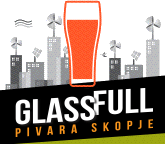
MAKING INFORMED CHOICES ON CALORIES INTAKE
 Poured by
Milica Stefanovic
Poured by
Milica Stefanovic 
As part of the Coca-Cola system, The Coca-Cola Company and Pivara Skopje recognize the uniqueness of consumers’ lifestyles and dietary choices and our variety of products is the foundation of our commitment to their health and well-being. We provide a broad portfolio of beverages and packaging sizes to meet consumers’ needs for refreshment, enjoyment, nutrition and hydration. To enable consumers to make informed dietary decisions, The Coca-Cola Company and Pivara Skopje accordingly, are committed to providing factual, meaningful and understandable nutrition information about all products from their portfolio.
Our products from the The Coca-Cola Company portfolio, like all sugar-sweetened beverages, provide refreshment, enjoyment and hydration. They also provide carbohydrates that are essential nutrients for life and are a source of energy (calories). It is important to remember that all caloric foods and beverages have the potential of contributing excess calories to the diet. One needs to be mindful of how much one eats and drinks. What matters the most is to include the needed nutrients from a variety of food and beverages in everyday diet and that there is a balance between the calories consumed and the calories burned through exercise.
We understand that balancing consumed and burned calories isn’t always easy. We are committed to helping people achieve this balance by:
- Providing transparent nutrition information featuring calories on the front of our packages
- Offering reduced, low- or no calorie beverage options.
The cornerstone for good nutrition and dietary habits is balance, variety and moderation. That is why we subscribe to the nutrition principle that all food and beverages can have a place in a sensible, balanced diet, combined with regular physical activity. It is therefore incumbent upon food and beverage companies to provide fact-based nutrition information about their products to facilitate consumer choice. Such information, in conjunction with effective consumer education, is essential in helping consumers meet their individual nutritional needs, including their appropriate energy requirements.
It is important that dietary guidance systems are fact-based and avoid disparaging or demonizing any food or beverage, or the role they can have in a healthy diet. Fact-based nutrition information is an objective statement of the amount of energy and/or nutrients contained in a specified quantity of a food or beverage. Such values are also represented in percentages to help the consumer place this information within the context of the total diet. Fact-based information is based on scientific knowledge about diet, nutrition, and the relation to health and does not make subjective judgments about the dietary relevance of the nutrient per se or the quantity provided by a given product. In setting dietary guidance, focus needs to be placed on “how much” food or beverage is consumed (portion control) and “how often” it is consumed.
Information provided by nutrient profiles is based on scientific evidence and knowledge about diet, nutrition and health; they are simple and applicable to all foods and beverages; and are validated prior to implementation to assess the accuracy and usefulness in helping consumers choose foods that can improve their overall diet quality. Nutritional information is emphasizing the importance of the overall diet, recognizing that all foods and beverages can be a part of a sensible balanced diet combined with regular physical activity. People have different energy needs depending on their weight, height, gender, age and level of physical activity.
Nutritional information includes energy (kilocalories and kilojoules), fats, saturated fats, carbohydrates, sugars, proteins and salt as a minimum, as well as any nutrient for which a nutrition or a health claim is made. Supporting energy transparency, energy information is provided per serving or per package, front-of-pack on all our packages. Nutritional information is based on a 250 ml serving. Packages that could be consumed on a single occasion, such as 330 ml cans, are labelled based on the full package.
Nutritional labelling also includes an information on the % of Reference Daily Intakes (RI) or Guidelines Daily Amounts (GDA) for energy and all nutrients included in nutritional labelling. RI information is based on a Reference Intake of an average adult (8.400 kJ/2.000 kcal).
RIs are a guide to how much energy and which specific nutrients are present in a serving/portion of a given food or beverage and what each amount represents as a percentage of a person’s daily dietary needs.
Information on % of RI helps us make the choices that are right for us, based on our individual lifestyle needs. Nutritional requirements vary depending on age, weight, height, gender and the level of physical activity. RIs are not targets for individuals, but guideline values for a healthy person of average weight, with an average level of activity.
When it comes to weight management, all calories count, no matter what food or beverage they come from. This includes calories consumed through our caloric beverages. That is why we offer reduced, low or no calories options, as well as beverages in small packages.
Life is sweet when you have options. We believe in consumer making informed choices regarding beverage types, regarding the type of sweeteners – caloric and non-caloric, and finally, regarding portion sizes.
Zero calorie options provided locally are the different packaging sizes of Coca-Cola zero, beverage with authentic Coke taste and no calories. We are also providing reduced calorie beverages, such as Nestea Peach and Nestea Lemon, which also come in different packaging sizes.









